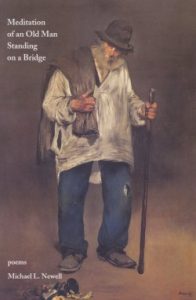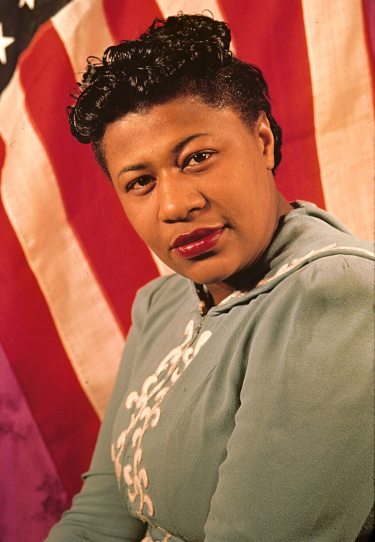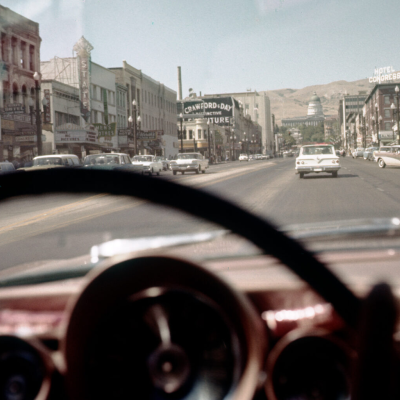Speechlessness
by Ilya Bernstein
The air, pinched, gathers to a punch
And comes out fighting from the horn.
Lips are applied to a ring of brass.
Out of their strain music is born.
It is the merry month of May.
A trumpet’s friction fills the air.
Its merry stuttering wends its way,
So rash, so reticent, so fair.
Man-made sinus — man-made, hand-held!
Valsalva should have named your valves.
Honor the mouthpiece, honor the bell,
For issuing such unclean vowels.
Their skidding stops are heard, not seen.
And then the breath takes off again.
But all that happens in between
Prolongs, prolongs that speechless chain
Look up, look up, and notice how
The thousand-fingered grapevine climbs
And crawls in all directions now,
And what intrusions fill the night!
Push back, push back that unsure hour
When, waving goodbye, we go away —
Let’s exercise what little power
We have and strut toward Judgment Day.
Air folded over a thousand times,
Now pointing up, now pointing down:
Linked sweetness, sweetness long-drawn out.
Linked bitterness, so brash, so fine.
I’ve been around the world in a plane
With tunes in my heart and my head,
Tunes that broke off, broke off and bent,
Like the outlines of an unseen flame…
__________
I Walked Down Broadway
by Ilya Bernstein
I walked down Broadway whistling Schubert’s songs,
One after another, those familiar tunes.
My hands were in the pockets of my jeans
And I had my old army jacket on.
I crossed the sidestreets — some wider than wide.
And the melodies flew out from between my lips.
I kept them rounded for many, many blocks,
Shaping those tunes in the narrow space inside.
I whistled the voice and the piano part,
And passages of some songs I even sang —
Then I went back and whistled them again,
And then replayed them again, right from the start
The swerve of Broadway carried me downtown.
I filled the air with small but resilient notes,
And I felt lucky and tried not to step
On all those birds’ nests lying on the ground
(originally published on Ars Interpres)
__________
The Pacific Settlers
by Freddington
It was the pulse of exploration,
A restless, cool interplay,
Born in the urban expanse,
An ocean of tar and concrete,
The last stop of the migration.
With the big bands in decline,
Jazz musicians headed west,
Finding work in the studios and soundstages,
of the massive film and television industries,
Determined to play their own music,
They gathered and wrote and recorded,
Creating their art after hours,
In the fluorescent haze,
The pale grey sweat-shine glow of the city at night,
Bop became a California fugue,
A new movement in a new setting,
In the wide open avenues,
The warehouses and motel strips,
Tired and run-down,
Luminous in the neon twilight,
A city of ashen wanderers,
Empty and crowded at the same time,
The endless chains of low-rise buildings and telephone poles,
Where the grime and soot is bleached out clean,
In the long days and blinding heat,
The new locale for Jazz,
In the constant sun of the new world,
L.A.
__________
Jazz Whisperer
by Stephen R. Walsh
Light sifts in through sleepy clouds of smoke.
A smooth sound of a sax tells you just relax.
A trumpet man exercising right to bring light,
to white washed souls.
A bass fiddle to solve life’s riddles.
Piano man tickles the ivory.
Shaken down notes that erupt like flares.
Sizzling cymbals, drum rolls.
Dark shadows of expressionless eyes, with flasks filled with booze,
waiting to hear latest jazz blues.
Camouflaged emotions rest on lazy eyes,
tears that cause a chill as hearts skip a beat.
Vibes that wash away the pain.
The clock with no hands tells you time to take five.
Its no commotion on the jazz ocean!
_________
Bill Evans and three Petite Blondes
by Dan Franch
Bill Evans came to town last night
– saxophone, piano, clarinet, even sang, too.
He was surrounded by three petite blondes,
And, man, were they tight.
Now don’t let your mind wander (or be offended)
It’s not what you think.
Those three blondes
were not women, were not blond
Nevertheless, they were tight.
Bill and his boys took us
through a two hour set –
funk, fusion, a bit of Blues;
at one point during the show
My wife leaned toward me, whispered,
“Pretty groovy”
“Pretty tight,” was my reply.
From what followed,
I don’t think she took it the wrong way.
__________
The Nicholas Brothers at Work
by Michael L. Newell
feet on fire with leaps, splits, sliding
splits, flying splits, splits down banisters,
leaps over audience members, leaps over
one another, feet moving so fast they leave
a smoke trail, all the while they create
a drum routine tapped all around the stage,
only the best drummers can match their
speed, their rhythm, their infinite variations,
two who can make their bodies do whatever
their minds can imagine, and make audiences
laugh, shout, rock and sway in their chairs,
and when the two men fly with grace, precision,
and speed to a finish, they lift the audience
to its feet, hands beating their own rhythm
in appreciation of the world just created
and left smoldering in viewers’ minds for all time.
__________
Boil ‘Em Cabbage Down
by Michael L. Newell
Mark O’Connor and Wynton Marsalis erupt into a mighty sound
on fiddle and trumpet dancing round their musical playground
with a red hot band helping to boil’em cabbage down;
the tune leaps from fingers and lips with a red hot flame;
the notes have wings flying round the stage, every musician
engaged in a frenzy celebrating life with a gusto that flows
from trumpet, whirls from fiddle strings, is driven by rock steady
bass keeping their world in sync while a sax rips along beneath it all;
rhythm guitar, drums, and piano ripple and swirl
through whatever musical gullies need filling; every face is lit
with the purest joy, the audience claps and shouts, and their world
is intoxicated for six or seven minutes of musical frenzy;
when it ends, applause builds, everyone is standing, and all
know they have been blessed in ways that can’t be anticipated.
Leaving, feet bounce on springs of remembered musical joy.
__________

Ilya Bernstein is a poet. His work has been published most recently in Arion, LVNG, and Delos. He lives in New York City.
*
Freddington works as a shipper/receiver in Toronto, Canada, and has been a lifelong jazz fan ever since he was “corrupted” as a teenager by Charles Mingus’ “Wednesday Night Prayer Meeting.”
*

Stephen R. Walsh
“I am a 75 year old man who spent 6 years (1964- 1970) in the U.S. army Yankee division Honorable Discharge spent time on active duty at Fort Dix N.J. and Fort Sam Houston Texas HQ for 4th U.S. Army: My M.O.S. was 910.00 combat medic. I was in the U.S. merchant marine, 38 years working for the Steamship Authority (Woods Hole, MA). Sailed as Purser -AB.”
(Ed. note…Mr. Walsh informs me “Jazz Whisperer” is the first poem he has ever submitted, anywhere, for publication)
*

Originally from the Chicagoland area, Dan Franch has lived and taught in America, Africa, and Europe. A former newspaper columnist and cartoonist in Luxembourg, Dan, who now lives in Estonia, does his best to continue traveling, writing, and staying fit.
*
Michael L. Newell is a retired English/Theatre teacher who has spent one-third of his life abroad. He now lives on the Oregon coast. In addition to the recent publication of his new book, Meditation of an Old Man Standing on a Bridge, he has recently had poems published in Verse-Virtual and Current.
Click here to access all of Michael L. Newell’s poetry published on Jerry Jazz Musician
To order a copy of the book, contact BELLOWING ARK PRESS 18040 7th Avenue NE Shoreline, WA 98155

*







































Ilya Bernstein: “Speechlessness” is a fine poem, rich in sound and imagery.
“I Walked down Broadway” does a first-rate job of merging the classical tunes of Schubert with an improvisational jazz treatment of the tunes by a city pedestrian. It is great fun and entices a reader on a very cool journey. Nice use of rhyme.
Two most enjoyable poems.
Ilya Bernstein: “Speechlessness” is a fine poem, rich in sound and imagery.
“I Walked down Broadway” does a first-rate job of merging the classical tunes of Schubert with an improvisational jazz treatment of the tunes by a city pedestrian. It is great fun and entices a reader on a very cool journey. Nice use of rhyme.
Two most enjoyable poems.
Freddington: “The Pacific Settlers” is a skillful history lesson mixed with a celebration of the artistic soul demanding its place in the world.
As usual, I enjoy your work.
Freddington: “The Pacific Settlers” is a skillful history lesson mixed with a celebration of the artistic soul demanding its place in the world.
As usual, I enjoy your work.
Stephen R. Walsh: “Jazz Whisperer” does a very good job of mixing rhythm, internal rhyme, and vibrant imagery to create a most enjoyable poem. Hard to believe that you are new at this. I look forward to seeing more of your work.
Stephen R. Walsh: “Jazz Whisperer” does a very good job of mixing rhythm, internal rhyme, and vibrant imagery to create a most enjoyable poem. Hard to believe that you are new at this. I look forward to seeing more of your work.
Dan Franch: “Bill Evans and Three Petite Blondes” is a lot of fun, and different from much of your other work. You continue to expand your poetic horizons, and I salute your willingness to dare.
One of the best jazz concerts I ever saw was during my year in Estonia back in the 2002-2003 school year. I miss Tallinn, I miss the school, and I miss our long discussions.
Dan Franch: “Bill Evans and Three Petite Blondes” is a lot of fun, and different from much of your other work. You continue to expand your poetic horizons, and I salute your willingness to dare.
One of the best jazz concerts I ever saw was during my year in Estonia back in the 2002-2003 school year. I miss Tallinn, I miss the school, and I miss our long discussions.
wonderful imagery